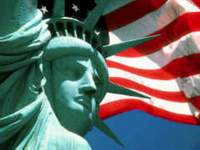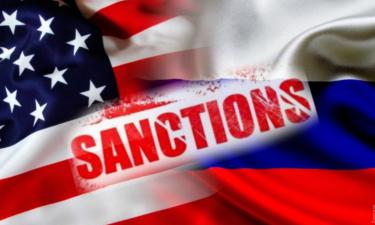Bush pays cheap for Russian democracy
The funds are allocated under the budget item for the “promotion of democracy in the independent states of the former Soviet Union”
U.S. Senate Subcommittee on Appropriations has voted for nearly twofold increase in the amount of funds to be allocated by U.S. budget in 2006 to support democracy and market reforms in Russia. Initially the White House intended to pay out $48 million to the Russian opposition which the American tend to call “democratic.” The sum was eventually increased up to $85 by the Senate. 
The funds are allocated under the budget item for the “promotion of democracy in the independent states of the former Soviet Union.” On the whole, the plan used by the U.S. for interfering into the internal affairs of those independent state is called Freedom Support Act. It passed U.S. Congress in 1992 following the collapse of the USSR.
The Americans either rate Russia's “democrats” too low or they hold out little hope of their real achievements. The Russian opposition turned out to be a group of unwanted children for the U.S. congressmen. Hatching new revolutions seems to require much more larger sums of money than those allocated for maintaining results already in place. Besides, Russia is much bigger country than Ukraine or Georgia. However, U.S. Congress allocates $85 million to Russia, $70.5 million to Georgia, and $95 million to Ukraine. Where are equality and brotherhood, the cornerstone of democracy? Could it be that the U.S. is actually using this simple tactic for urging an amorphous Russian opposition to take action and secure future riches? Well, the method simply can not work in Russia. Many a politician have already manipulated the people by selling them the scheme that read: “you vote for me today, you live a prosperous life tomorrow.” So the Russian “democrats” do not buy the promises of living in the lap of luxury if those promises refer to some distant future. They normally want money up front. Given longstanding tradition of misappropriation in this country, U.S. funds allocated to “support democratic developments in the Russian Federation” can only be good enough for painting fences orange all over Russia.
U.S. told Georgians and Ukrainians that they were in clover
“The recent triumph of civil society and democracy in Ukraine and progress made by Georgia following the “rose revolution” in that country mirrors a crucial role of the democracy promotion programs implemented in the framework of Freedom Support Act,” says the State Department cover memorandum attached to the 2006 budgetary allocation request.
U.S. Congress might as well approve additional budgetary allocation related to funds for democracy promotion in Georgia and Ukraine. We are talking about money for information purposes. The people of Georgia and Ukraine have the right to know that they live in a prosperous, developed, civilized and democratic society. They have the right to know that everything is fine and certain things just never happened, like Georgian prime minister Zurab Zhvania who never died a mysterious death or Ukraine's former interior minister Yuri Kravchenko who never shot himself twice in the head. Opponents of the “orange revolution” in Ukraine were never threatened or arrested.
And, most important, there are no such things as rising unemployment or food prices and a plummeting standard of living both in Georgia and Ukraine.
The revolutionaries could be up to pulling off any job if the “exporters of democracy” succeed in convincing the people of Georgia and Ukraine that the above allegations are true.
If you win, then you are a democrat
The United States interprets the concept of democracy in a pretty loose manner. At this point, we had better remember the story of the Moldavian President and leader of the Moldavian Communist Party Vladimir Voronin. Until recently he had been labeled an enemy. Regime change had been highly recommended. U.S. stance on Mr. Voronin changed dramatically after he stopped flirting with Moscow which had no intentions of meddling in Moldavia's elections. As it turned out, Mr. Voronin always gravitated toward the West, and the Moldavian Communist Party is not that communist after all. On the contrary, it is quite democratic. As a result, Mr. Voronin retained his post and the U.S. declared Moldavia a truly democratic country.
The “exporters” tried using the same methods in Kyrgyzstan. Messrs. Yushchenko and Saakashvili were quick to offer help and support to Askar Akayev as doped-up crowds began looting Kyrgyz cities. But Mr. Akayaev bluntly denied the offer of the advocates of revolution and opted for handling the upheaval on his own. He failed. Mr.Akayev could have followed suit of Mr. Voronin. But he was ousted and fled Kyrgyzstan.
By the bye, every Russian national these days can supposedly feel the efficiency of U.S. democracy promotion program. According to official statements, U.S. budget allocated $85 million for the promotion of democracy in Russia in 2005. In other words, the Russians should have noticed changes for the better coming from within. However, a handful of opposition parties were the only things noticeable. The parties would come to light, their leaders would squabble, some members would depart and form new parties. Aside from the above, people could see the Russian “democrats” wear new clothes and drive new cars.
Subscribe to Pravda.Ru Telegram channel, Facebook, RSS!




